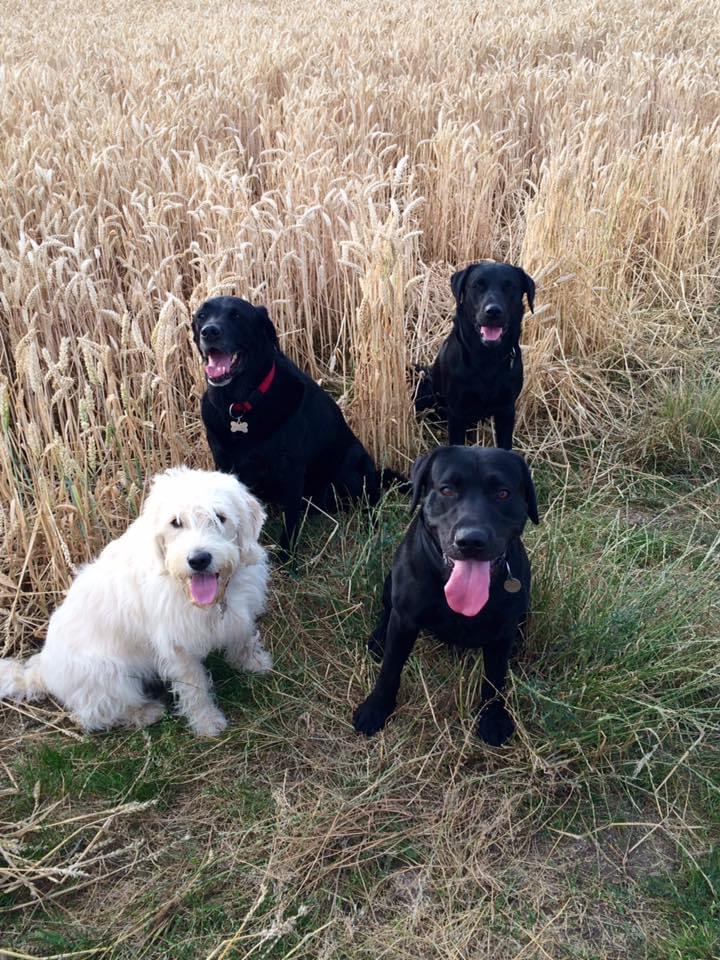
Becoming a Successful Dog Walker | Your complete guide
Paws and Profits: A Comprehensive Guide to Becoming a Successful Dog Walker
Introduction: If you have a deep love for dogs and enjoy spending time outdoors, becoming a dog walker could be a fulfilling and financially rewarding career choice. As a dog walker, you'll not only provide essential exercise for furry companions but also contribute to their happiness and well-being. In this blog post, we'll walk you through the steps to become a dog walker, discuss the costs involved in starting your own dog walking business, and explore the qualifications you may need.
Step 1: Embrace Your Love for Dogs
Before embarking on your journey as a dog walker, it's important to have a genuine passion for dogs and a strong understanding of their behaviours, needs, and safety requirements. A positive attitude and good communication skills are key when dealing with both the dogs and their owners.
Step 2: Gain Experience and Knowledge
While formal qualifications may not be mandatory, having a solid foundation of knowledge and experience is crucial. There are many benefits to gaining dog walking qualifications from the likes of iPET Network or City & Guilds but also wider topics such as behaviour. A qualification in Canine First Aid is highly recommended. Spend time around dogs to familiarise yourself with different breeds, temperaments, and behaviour cues. Consider volunteering at animal rescues or shelters or assisting experienced dog walkers to learn the ropes.
Step 3: Understand Dog Handling and Safety
A comprehensive understanding of dog handling and safety is paramount. Learn techniques for proper leash control, appropriate interactions with other dogs, and understanding canine body language. This knowledge will help ensure the safety and well-being of the dogs under your care and would be covered in an appropriate qualifications such as the iPET Network Level 3 Award in Dog Walking & Pet Sitting.
Step 4: Business Planning and Costs
Starting your own dog walking business involves careful planning and budgeting. Here are some potential costs to consider:
1. Licenses and Permits: Check local regulations and obtain any necessary licenses or permits to operate a dog walking or pet sitting business in your area. Costs may vary based on location.
2. Insurance: Consider liability insurance to protect yourself and your clients in case of accidents or incidents during walks.
3. Marketing: Create a professional website, business cards, and promotional materials to attract clients. You may also allocate a budget for online advertising and social media promotion.
4. Transportation: If you'll be picking up and dropping off dogs, factor in costs for transportation, such as a reliable vehicle.
5. Supplies: Invest in essentials like leads, waste bags, water bowls, and treats for the dogs.
6. Branding: Develop a brand identity, including a logo and branding materials that reflect your professionalism.
Step 5: Build a Client Base
Building a solid client base is essential for a successful dog walking business. Network within your community, utilise social media platforms to showcase your services, and offer promotions or discounts to attract new clients. Word-of-mouth referrals from satisfied clients can also greatly contribute to your business's growth.
Step 6: Set Your Rates
Determine your pricing structure based on factors such as the duration of walks, the number of dogs you'll be walking, and any additional services you offer (e.g. pet sitting). Research local market rates to ensure your pricing is competitive but figure out the costs to make your business work, being cheapest won’t guarantee success.
Step 7: Provide Exceptional Service
As a dog walker, your responsibility extends beyond physical exercise. Provide personalised care, ensure the safety of the dogs, and communicate openly with pet owners about their pets' well-being. Regular updates and photos during walks can help establish trust and strengthen your client relationships.
Conclusion: Becoming a dog walker allows you to combine your love for dogs with a profitable business venture. While formal qualifications may not be mandatory, a strong foundation of knowledge, experience, and a commitment to safety are essential. A qualification in Canine First Aid is highly recommended. By carefully planning your business, budgeting for initial costs, and focusing on exceptional service, you can create a successful and fulfilling career as a dog walker, bringing joy and exercise to dogs and peace of mind to their owners.
View our Canine related qualifications here
